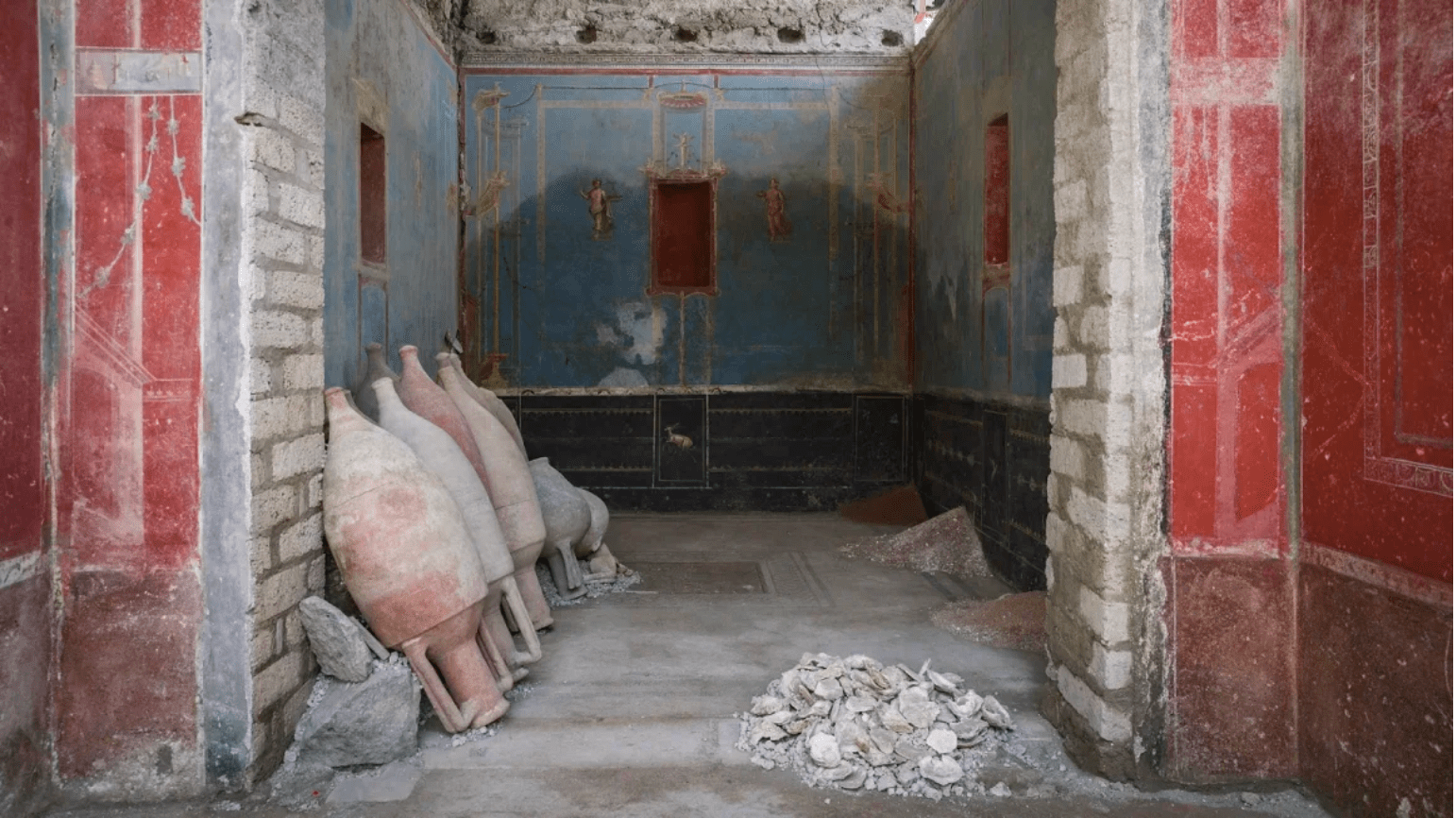
An ancient Roman shrine room was discovered during recent excavations by archaeologists at the Pompeii Archaeological Park.
The 86-square-foot sacrarium features painted blue walls decorated with female figures depicting the four seasons of the year, along with allegories of agriculture and shepherding. The room’s color is notably rare, and would have demarcated it as a place of importance for ritual activities and storing sacred objects.
“Pompeii is truly a treasure chest that never ceases to surprise us and arouse amazement because, every time we dig, we find something beautiful and significant,” Italian culture minister Gennaro Sangiuliano told Euro News.
In the room were 15 transportable amphorae and a bronze set of two jugs and two oil lamps.
Also found at the site were construction materials that were ready for renovations, including the remains of oyster shells, which would have been crushed and added to plaster and mortar mixes.
The discovery is one among many in an ongoing excavation in Regio IX in the city’s center. In its heyday, it was a residential area believed to include more than 13,000 rooms among 1,070 housing units.
Experts are trying to improve on the “protection of the vast Pompeiian heritage” and to make the site “more effective and sustainable,” the culture ministry told CNN.
This is just the latest in a string of notable finds made in the ancient city. Recently announced at the House of the Chaste Lovers was the identification of violent children’s sketches of gladiators and hunters, along with the remains of two people, presumably a couple, discovered outside of the nearby House of the Painters at Work. Also recently found was an unusual small painting of a hooded boy believed to be the deceased son of the building’s owners.
In the same area, a banquet hall with black frescos depicting the Trojan War was discovered earlier this spring.
